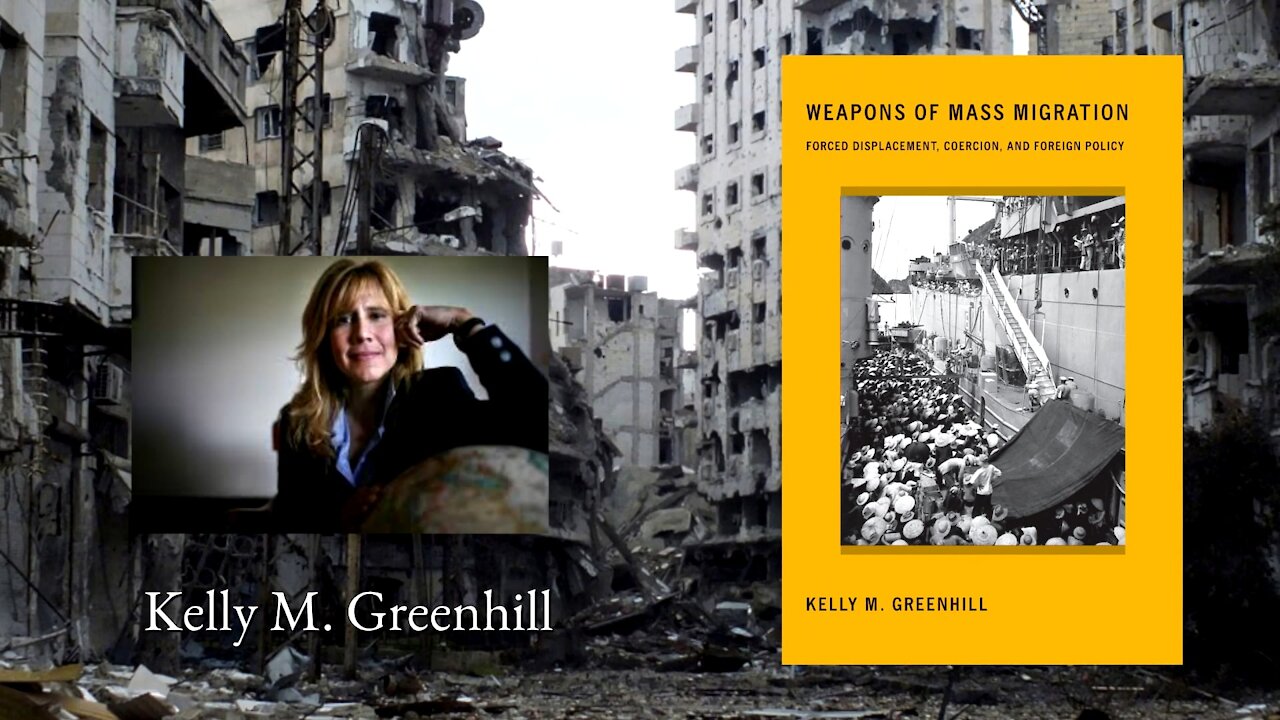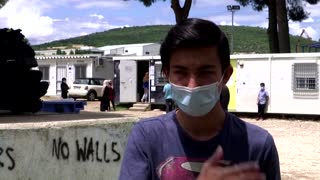Premium Only Content

Just A Taste: Weapons of Mass Migration: Forced Displacement, Coercion, and Foreign Policy with Prof
“If aggression against another foreign country means that it strains its social structure, that it ruins its finances, that it has to give up its territory for sheltering refugees…what is the difference between that kind of aggression and the other type, the more classical type, when someone declares war or something of that sort?”
~ Samar Sen, India’s ambassador to the United Nations
Kelly M. Greenhill, Ph.D. is an Associate Professor of International Relations and Security Studies at Tufts University. Her research focuses on foreign policy, the use of military force and what are frequently called “new security challenges” including:
Civil wars
The use of forced migration as a weapon
Intervention and (counter-) insurgency
International crime as a challenge to domestic governance
Professor Greenhill’s book, Weapons of Mass Migration: Forced Displacement, Coercion and Foreign Policy (Cornell Studies in Security Affairs), received the 2011 International Studies Association’s Best Book of the Year Award. She is also the co-author and co-editor of Sex, Drugs and Body Counts: The Politics of Numbers in Global Crime and Conflict and the eighth edition of The Use of Force: Military Power and International Politics (R&L). She is a research fellow at the Harvard University Kennedy School of Government’s Belfer Center and is an Associate Editor of the journal International Security.
Professor Greenhill joins me this week for a profoundly insightful discussion of the growing use of mass migration as a coercive tool in international relations. Providing an overview of (56) cases between 1951 – 2006, she describes how this tactic has historically been “hidden in plain sight.” With mass migrations around the world growing rapidly, this is an aspect which is invaluable to understand.
Greenhill’s research is a serious academic effort. She has dug into the “behind the scenes” diplomacy and politics as well as the related media drama in numerous case studies. Her stories remind us that small countries are not without “weapons of war.” Indeed, her statistics indicate that mass migration has often been a more effective tactic than traditional military intervention.
Listen to the full interview on solari.com
-
 5:41
5:41
One America News Network
3 years agoTipping Point - Biden's Foreign Policy Confusion with Sumantra Maitra
1.08K4 -
 10:10
10:10
NEWSMAX
3 years agoBiden’s Feckless Foreign Policy
4.18K4 -
 1:55
1:55
Reuters
3 years agoGreece hardens its migration policy
3874 -
 4:29
4:29
Donald Trump Jr.
3 years agoStrong Foreign Policy Is Key!
22.5K303 -
 4:49
4:49
One America News Network
3 years agoTipping Point - Examining Joe Biden's Foreign Policy Failures with Adam Kredo
4889 -
 56:14
56:14
Flyover Conservatives
23 hours agoSick, Tired, & Foggy? The TRUTH About What’s Living in Your Gut! - Dr. Jason Dean | FOC Show
50.5K5 -
 34:24
34:24
Kimberly Guilfoyle
10 hours agoFaith, Fairness, and a Better Future: Live w/ Joy Pullmann & Elizabeth Mitchell | Ep.194
147K31 -
 1:12:20
1:12:20
Josh Pate's College Football Show
8 hours ago $3.35 earnedBig CFB Changes Coming | DeBoer Fixing Alabama | Signing Day Reaction | OhioSt vs Michigan Shift
55.9K2 -
 59:39
59:39
The StoneZONE with Roger Stone
5 hours agoEXCLUSIVE: James O'Keefe Talks to Roger Stone About Dropped Charges Against Him | The StoneZONE
44.8K3 -
 1:48:10
1:48:10
megimu32
5 hours agoON THE SUBJECT: Comedian LOSES It At Heckler!
28.1K6